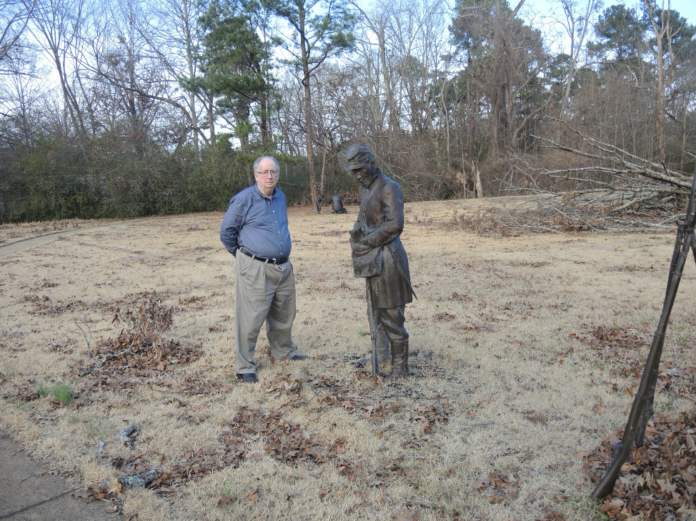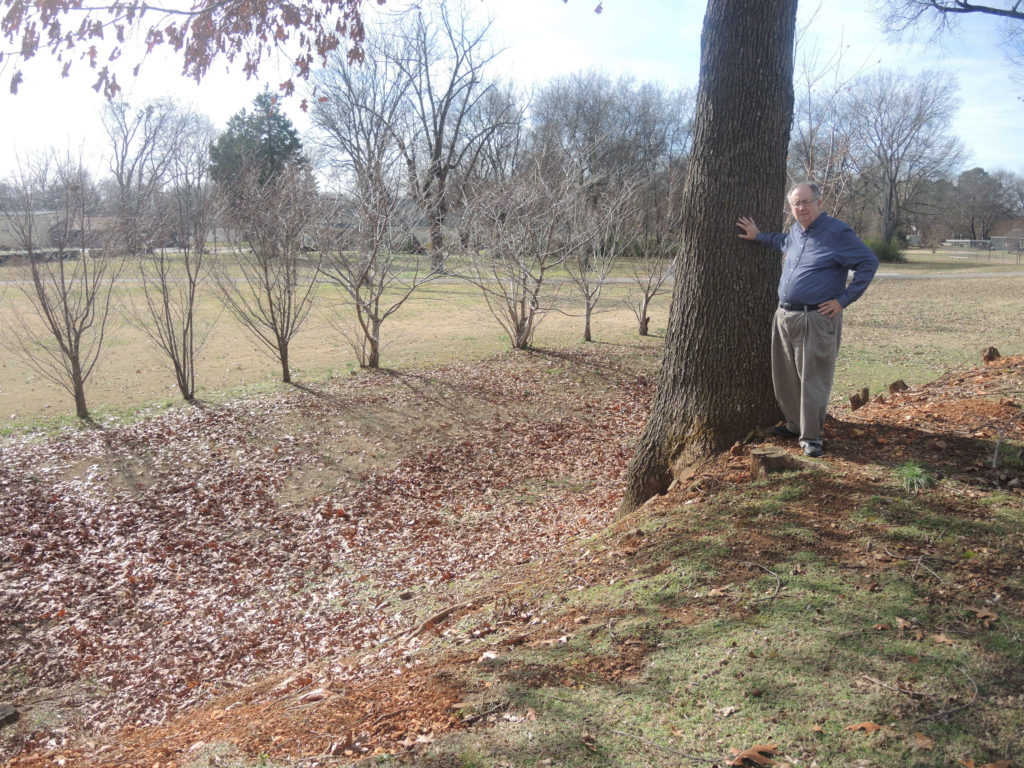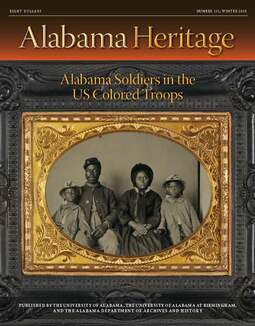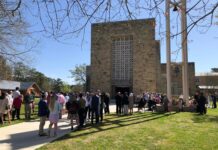
HANCEVILLE, Ala. – Leading up to Black History Month, the just-released Winter 2020 issue of Alabama Heritage Magazine has as its cover story “’Fighting for Freedom’: Alabama’s USCT Soldiers.” The article tells of the escaped slaves from the Tennessee River Valley who joined the United States Colored Troops during the Civil War. Author Robert S. Davis of Wallace State Community College Hanceville teaches history and oversees the Wallace State Library’s genealogy collection and family research center.
During the course of his research, Davis learned that families of escaped slaves settled in the contraband (refugee) camp in Corinth, Miss., and later in camps in Decatur and Huntsville in Alabama. The men who enlisted served with distinction in Alabama, Mississippi and Tennessee. Some of their number worked as cooks and teamsters in General Sherman’s Atlanta Campaign and March to the Sea.
Escaped slaves paid a price for their freedom. Alabama soldiers died in the infamous Fort Pillow Massacre. White officers surrendered USCT troops in the fighting at Athens and Decatur. Soldiers who did not escape obtained rescue when other Black regiments stormed Confederate Fort Blakeley, near Mobile, at the end of the war.
Members of the USCT suffered discrimination in medical care, pay, supplies and veterans’ benefits. They died at a disproportionate rate to their white comrades, even after the war. Fort Henderson in Athens is planned to become a monument to their service. Corinth, Mississippi has a park of statues memorializing the Alabama soldiers and the refugee families.
Professor Davis found the story of the Alabama USCT soldiers in materials in the Limestone and Morgan county archives and in the great libraries across North Alabama. Local historians Peggy Towns and David Meagher contributed their research to the story.
Davis has published more than 1,300 times, given hundreds of talks, and appeared on television documentaries. His recent publications include Frenchman R. A. Moen’s trip through north Alabama in 1831 for the Alabama Review; an article on Native American stone walls (500 BCE to 500 ACE) in north Alabama; and the conspiracy and murder around the Dooly-Egypt Plantation in Lincoln County, Georgia.
Davis will offer a continuing education class in family history/computer genealogy on the evenings of Feb. 5 and 6. A similar class on Southern Genealogy and Civil War research will be on the evenings of March 18-19. For information on these classes contact Amanda Aris at 256-352-8386 or amanda.aris@wallacestate.edu.
Wallace State’s award-winning genealogy program has an extensive research collection used by family history researchers and other scholars from across the country. The staff helped Robin Sterling with his new book “Tales of Old Cullman County.” Volunteer Phil Viverto has obtained from the Lions Club funds for a scanner for the program’s photograph preservation project. Tanya Shearer of the program researches the Cullman Flying 50, the 1955 effort to bring industry to Cullman County.
For more information about February events at Wallace State celebrating Black History Month, including the Ailey II national dance company performance on Feb. 11 at 7:30 p.m. in the Betty Leeth Haynes Theatre (www.wallacestate.edu/ailey2), and a free event featuring professional speaker, orator and vocalist David Johnson on Feb. 26 at 10 a.m. in the Burrow Center Recital Hall, visit www.wallacestate.edu.



















